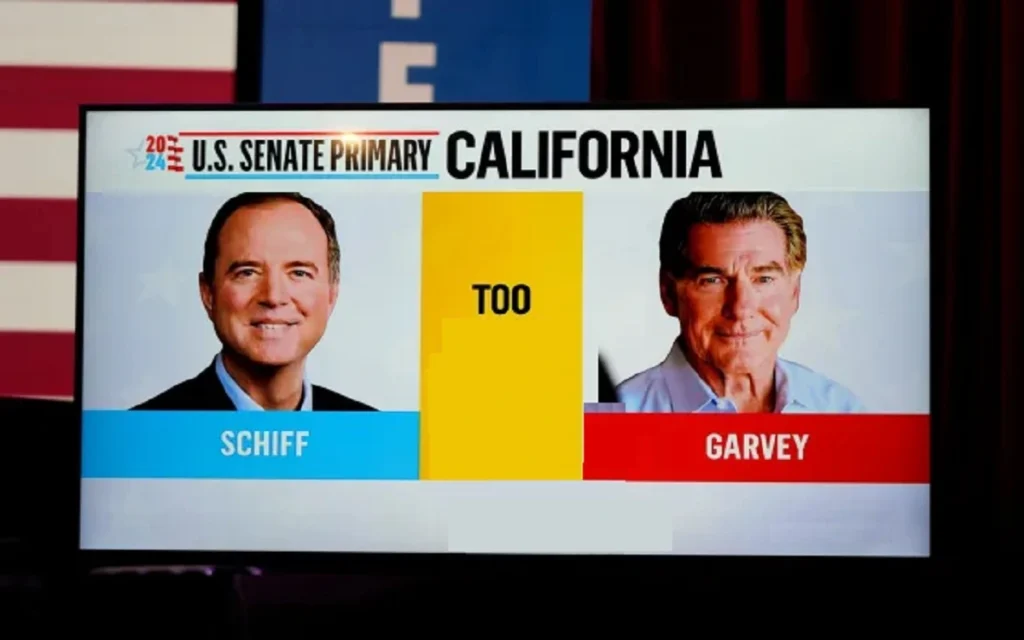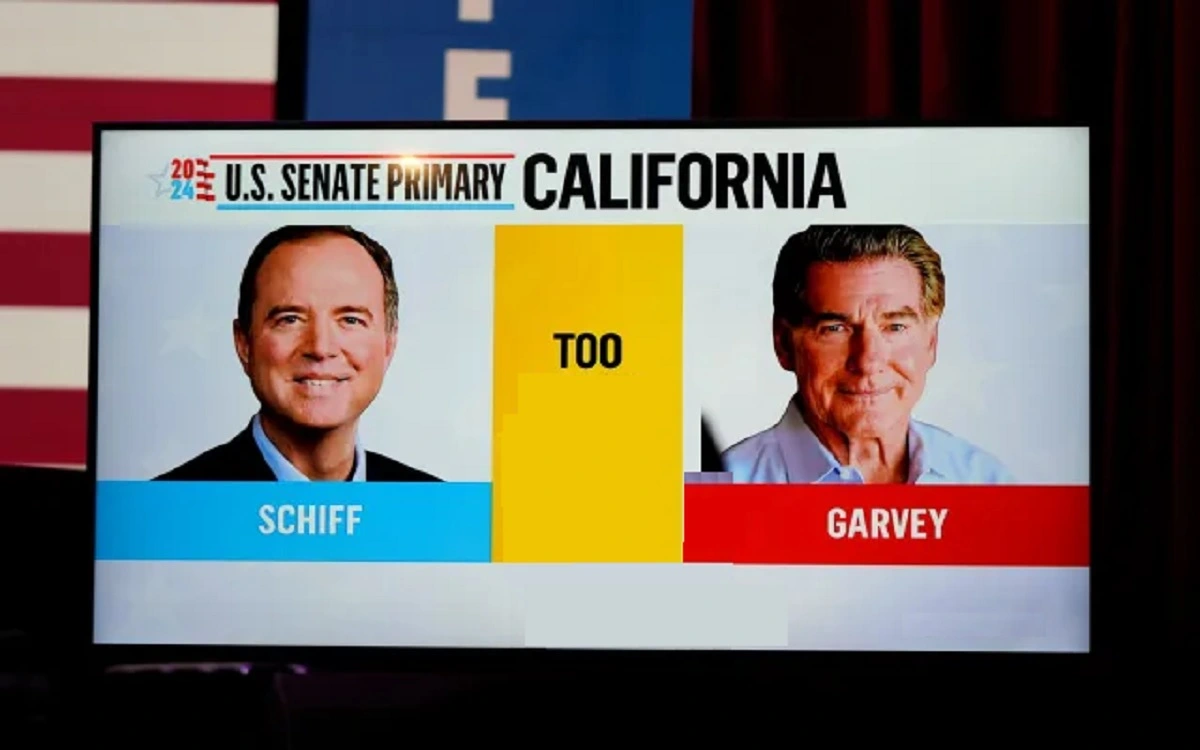|
Getting your Trinity Audio player ready...
|
In the latest developments surrounding California’s hotly contested U.S. Senate race, a new poll reveals that Democratic frontrunner Adam Schiff remains largely unfazed by Republican Steve Garvey’s bid, while voters show little enthusiasm for altering the state’s tax approval thresholds [1]. These findings come amidst a political landscape charged with debates on fiscal policy and representation.
Schiff Maintains Edge Despite Garvey’s Entry
The poll, conducted by the Public Policy Institute of California (PPIC), indicates that Schiff, a prominent Democrat and former chair of the House Intelligence Committee, continues to hold a significant lead over his competitors.

Despite the entrance of Steve Garvey, a former baseball star turned Republican candidate, into the race, Schiff’s support base appears solid.
The numbers suggest that Garvey’s candidacy has not dramatically altered the dynamics of the race,
notes political analyst Dr. Mariana Hernandez.
Schiff’s established presence and strong Democratic backing in California seem to be providing him with a buffer against challengers.
Indeed, the poll shows Schiff garnering 32% of likely voters, while Garvey trails at 18% [2]. This 14-point gap underscores the uphill battle facing the GOP in a state that has not elected a Republican to the Senate since 1988.
Garvey’s Recognition vs. Political Traction
Steve Garvey, leveraging his fame from a storied career with the Los Angeles Dodgers and San Diego Padres, entered the Senate race with hopes of energizing the Republican base. However, the PPIC poll suggests that name recognition alone may not be enough to pose a serious threat to Schiff’s campaign.
Garvey certainly brings star power,
says veteran campaign strategist Tom Weathers.
“But translating that into political momentum in a state as blue as California is a formidable task. The poll indicates voters are prioritizing policy experience over celebrity.”
Tax Reform Proposals Face Lukewarm Reception
Parallel to the Senate race, the poll delved into voter attitudes toward potential changes in California’s tax system. Specifically, it gauged support for lowering the voter threshold required to approve local tax measures from two-thirds to 55% [3].
The findings reveal a distinct lack of appetite among Californians for such reforms. Only 35% of likely voters expressed support for easing the tax approval process, while a majority stood in opposition [3]. This sentiment cuts across party lines, suggesting a bipartisan hesitance to alter longstanding fiscal safeguards.
Californians have historically been protective of their say in tax matters,
explains Dr. Elise Roth, a professor of public policy at UC Berkeley.
The Proposition 13 legacy looms large, and there’s a prevailing view that the current thresholds serve as a critical check on government spending.
Implications for Fiscal Policy and Governance
The poll’s insights on tax reform carry significant implications for state and local governments grappling with funding challenges. Many municipalities have argued that the two-thirds requirement hamstrings their ability to raise necessary revenue for public services and infrastructure [4].
However, taxpayer advocacy groups lauded the poll results.
This reaffirms that Californians want a high bar for new taxes,
says Marcus Dupree of the California Taxpayers Association.
It’s about accountability and ensuring broad consensus before reaching deeper into people’s pockets.
As the 2024 election cycle unfolds, these dual narratives of political competition and fiscal conservatism are likely to shape the discourse. Schiff’s resilience in the polls positions him as the candidate to beat, yet the race remains far from decided. Meanwhile, the electorate’s stance on tax policy signals that any future reform efforts will face scrutiny.
With months to go before Californians cast their ballots, both the Senate contenders and proponents of tax changes have their work cut out for them. In a state known for its political surprises, today’s poll numbers offer a snapshot of voter sentiment—but the only poll that ultimately matters is the one on Election Day.
For More News Update Visit California News



